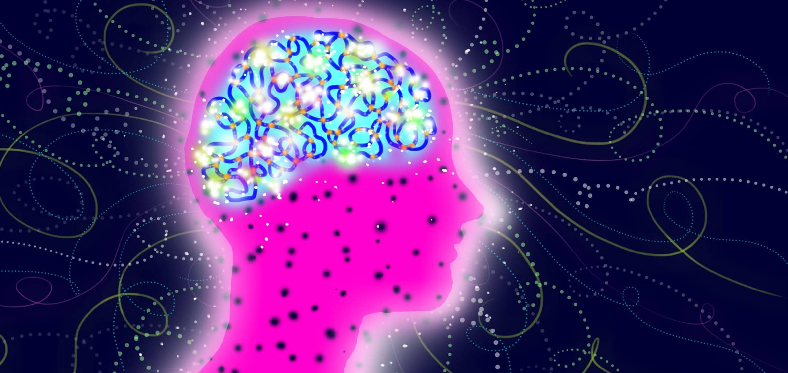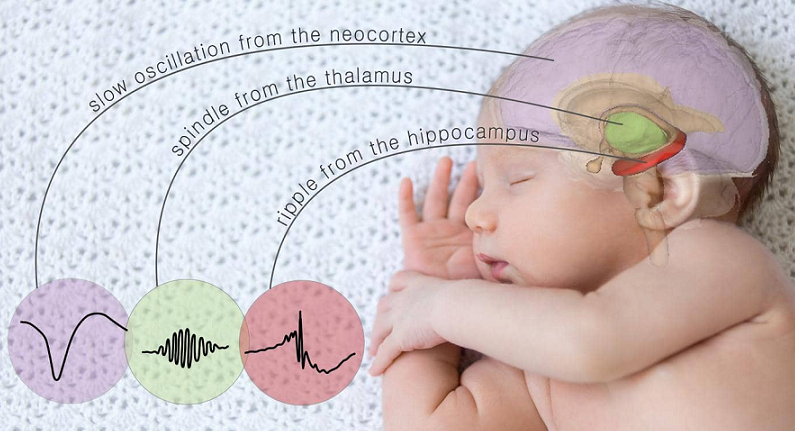
Neurons and sleep are more intimately connected than you might think. Sleep isn’t merely a time of rest for your body; it is a crucial period during which your neurons work diligently to consolidate memories, process information, and rejuvenate for the coming day. Conversely, the activities of neurons throughout the day determine when we feel awake and when we feel sleepy. Here we dive deep into the intricate relationship between neurons — the fundamental units of the brain — and sleep, an activity so basic, yet so complex, that it still baffles and amazes scientists today.
Contents
Brief Explanation of Neurons and Sleep
Neurons, also known as nerve cells, are the fundamental units of the brain and the rest of the nervous system. They are responsible for receiving sensory input from the external world, for sending motor commands to our muscles, and for transforming and relaying the electrical signals at the core of all brain functions.
Sleep, on the other hand, is a state that is characterized by changes in brain wave activity, breathing, heart rate, body temperature, and other physiological functions. Sleep is essential to several brain functions, including how nerve cells (neurons) communicate with each other and how the body repairs itself. Research shows that a good night’s sleep improves learning, memory, and mood, while chronic sleep deprivation can lead to a host of health problems.
Unveiling the Neurons
The human brain contains approximately 86 billion neurons, a testament to their vital role in our body.
Basic Definition of Neurons
At the most fundamental level, neurons, also known as nerve cells, are specialized cells that transmit electrical impulses. They form the basic building blocks of the nervous system, which includes the brain, spinal cord, and peripheral nerves. This system allows us to perceive the world around us, think, feel, move, and even dream.
Structure and Function of Neurons
Neurons have a unique structure that sets them apart from other cells and enables them to carry out their functions effectively. A typical neuron is composed of three parts: the cell body (or soma), dendrites, and an axon. The cell body houses the nucleus and other essential components for cell survival. Dendrites are branch-like structures that receive signals from other neurons and carry them toward the cell body. The axon, usually longer than dendrites, sends impulses away from the cell body toward other neurons, muscles, or glands.
In terms of function, neurons transmit information through electrical and chemical signals. This communication happens through a process known as synaptic transmission. Essentially, when a neuron receives a signal, it generates an electrical impulse, called an action potential, that travels along the axon. Upon reaching the axon’s end, it triggers the release of neurotransmitters, chemical messengers, into the synapse (the space between neurons). These neurotransmitters then bind to receptors on the receiving neuron, thus transmitting the signal.
Role of Neurons in the Human Brain
Neurons play an integral role in virtually all tasks performed by the brain. Different neurons have specialized functions depending on their location. For instance, sensory neurons respond to stimuli such as light, sound, or touch and send signals to the brain or spinal cord. Motor neurons, on the other hand, transmit signals from the brain or spinal cord to muscles or glands, instigating action. Interneurons communicate solely with other neurons, typically within the same region of the brain, forming networks that integrate and interpret information [1].

Demystifying Sleep
Often viewed as a passive state of rest, sleep is, in reality, a dynamic process that plays a pivotal role in many aspects of our health and well-being.
Definition of Sleep
Sleep is a naturally recurring state of mind and body, characterized by altered consciousness, inhibited sensory activity, reduced muscle activity, and minimal interaction with surroundings. Contrary to popular belief, it is an active period in which a lot of important processing, restoration, and strengthening occur.
Sleep Stages and Cycles
Sleep is typically divided into two broad types: Rapid Eye Movement (REM) sleep and Non-Rapid Eye Movement (NREM) sleep. These stages cycle in a pattern throughout a typical night’s sleep.
NREM Sleep
This is further divided into three stages, N1, N2, and N3 [2]. Each stage represents a progressively deeper level of sleep:
- N1 is the transition period from wakefulness to sleep.
- N2 represents light sleep, where heart rate slows and body temperature drops.
- N3 is known as deep or slow-wave sleep. This stage is crucial for memory consolidation and physical recovery.
REM Sleep
This stage is characterized by rapid eye movements, increased brain activity, vivid dreams, and temporary muscle paralysis. REM sleep plays an essential role in learning and memory function because this is when your brain consolidates and processes information from the day before so that it can be stored in your long-term memory [3].
An average adult has five to six cycles of NREM and REM sleep per night, with each cycle lasting approximately 90 minutes.
Importance of Sleep for Health and Well-being
Sleep serves numerous functions that are crucial to our cognitive, emotional, and physical health. During sleep, our bodies repair cells, clear toxins, consolidate our memories, and process emotions. Lack of quality sleep has been associated with a range of health problems, such as obesity, diabetes, cardiovascular disease, and even premature mortality. On a cognitive and psychological level, sleep deprivation affects attention, working memory, mood, and mental health.

The Relationship between Sleep and Neurons
The relationship of neurons and sleep is a bi-directional one – not only do neurons regulate sleep, but sleep, in turn, influences the function and health of neurons.
Role of Neurons in Sleep Regulation
Neurons play a significant role in the regulation of sleep. This regulation is complex and involves multiple areas of the brain and numerous neurotransmitters. Two primary processes, sleep-wake homeostasis and circadian rhythms, contribute to our sleep patterns.
Sleep-Wake Homeostasis
This process keeps track of your need for sleep. The longer you’re awake, the stronger your desire for sleep becomes. Specific neurons in the brain, particularly those in the hypothalamus and brainstem, play a role in promoting sleep and wakefulness [4].
Circadian Rhythms
These are 24-hour cycles that are part of the body’s internal clock, running in the background to carry out essential functions and processes. One of the most crucial jobs is determining our sleep and feeding patterns. The suprachiasmatic nucleus (SCN), a group of neurons in the hypothalamus, is the primary regulator of circadian rhythms, including the sleep-wake cycle.
Influence of Sleep on Neuron Function
While neurons are vital in regulating sleep, sleep, in turn, significantly impacts the functioning and health of neurons.
Effect of Sleep Deprivation on Neurons
Sleep deprivation can have harmful effects on the brain, and by extension, on neurons. Prolonged lack of sleep can lead to a decrease in neuronal activity and responsiveness, reducing cognitive functions such as attention, memory, and creative thinking. Some research suggests that chronic sleep deprivation may even lead to irreversible damage or loss of neurons.
Role of Sleep in Neuronal Recovery and Synaptic Plasticity
Sleep plays a critical role in neuronal recovery and the strengthening of neural connections, a process known as synaptic plasticity. During sleep, especially during the deep slow-wave sleep, the brain goes through a process of “synaptic downscaling,” where connections between neurons (synapses) are pruned back. This process is crucial for memory consolidation, learning, and overall brain health [5].
Understanding this two-way relationship between sleep and neurons is crucial as it opens doors to potential strategies for enhancing cognitive function, improving sleep quality, and mitigating the impact of sleep disorders on brain health.

Understanding the Impact of Sleep on Memory and Learning
One of the most fascinating areas where sleep and neurons intersect is in the domains of memory and learning. Decades of research suggest that sleep plays a critical role in these cognitive processes, with specific stages of sleep involved in different types of memory.
The Role of Sleep in Memory Consolidation
Memory consolidation is the process by which our brains convert short-term memories into long-term ones. Sleep plays a vital role in this process. During sleep, particularly during NREM sleep, our brains replay the day’s events. This replay allows for the strengthening of neuronal connections, leading to the conversion of these experiences into long-term memories. REM sleep, on the other hand, appears to play a role in consolidating procedural or skill-based memories.
The Neuronal Mechanisms Involved in Learning and Memory
Neurons play a fundamental role in learning and memory. Whenever we learn something new, our neurons form new connections, a phenomenon known as synaptic plasticity. These connections, or synapses, are where the magic of learning and memory happen.
During sleep, particularly during deep slow-wave sleep, the brain appears to selectively strengthen or weaken synaptic connections based on the experiences of the day. This process, known as synaptic homeostasis, is thought to be a primary reason why sleep is so crucial for learning and memory [6].
Effect of Sleep Deprivation on Learning and Memory
Sleep deprivation has a profound impact on cognitive functions, particularly learning and memory. Lack of sleep impairs the brain’s ability to consolidate and recall information. This impairment is believed to be due to disrupted neuronal functioning and synaptic plasticity.
For instance, research shows that sleep deprivation can lead to decreased activity in the hippocampus, a brain region critical for memory formation. Furthermore, chronic sleep deprivation could potentially lead to long-lasting changes in brain connectivity and function, which could have implications for cognitive abilities and mental health.
Sleep Disorders and Neuronal Health
Sleep disorders, including insomnia, sleep apnea, and restless leg syndrome, affect millions of people worldwide. Such conditions not only affect quality of life but can also have serious implications for neuronal health.
Impact of Common Sleep Disorders on Neurons and Brain Function
Common sleep disorders such as sleep apnea, insomnia, and restless leg syndrome can significantly affect neuronal health and brain function. For instance, sleep apnea, characterized by repeated interruptions in breathing during sleep, leads to lower oxygen levels in the brain. Over time, these lowered oxygen levels can cause damage to neurons and contribute to cognitive issues such as memory loss, attention deficits, and decreased cognitive speed.
Insomnia, characterized by difficulty falling or staying asleep, can also negatively affect neurons and brain function. Chronic insomnia can lead to sustained elevated levels of cortisol, the body’s main stress hormone, which has been shown to damage and kill neurons in areas of the brain important for memory and learning.
Sleep Disruption and Neurodegenerative Diseases
There is growing evidence suggesting a link between chronic sleep disruption and an increased risk of neurodegenerative diseases, such as Alzheimer’s disease and Parkinson’s disease. Chronic sleep deprivation has been associated with increased levels of beta-amyloid, a protein that accumulates in the brains of Alzheimer’s patients [7].
Furthermore, research has suggested that the brain’s clean-up mechanism, known as the glymphatic system, is most active during sleep. This system removes waste products, including harmful neurotoxic proteins that can accumulate between brain cells. Chronic sleep disruption could impede this cleaning process, contributing to the buildup of these toxic proteins and increasing the risk of neurodegenerative diseases.
Role of Neurons in the Development of Sleep Disorders
Conversely, neurons also play a role in the development and progression of sleep disorders. For instance, neurons located in the brain’s hypothalamus region play a crucial role in regulating sleep-wake cycles. Damage or changes to these neurons can lead to disruptions in these cycles, potentially leading to sleep disorders such as insomnia or hypersomnia.
Understanding the interplay between sleep disorders and neuronal health can not only lead to better strategies for preventing and treating these disorders but can also provide insights into the broader relationship between sleep, neuronal health, and overall brain function.
References
[1] Brain Basics: Understanding Sleep
[2] Neuronal Mechanisms for Sleep/Wake Regulation and Modulatory Drive
[3] Healthy Sleep: Under the Brain’s Control
[4] What happens in the brain when we sleep?
[5] Even in sleep, your brain’s neurons are humming along to Mozart
[6] Sleep-promoting neurons remodel their response properties to calibrate sleep drive with environmental demands
[7] REM sleep-active hypothalamic neurons may contribute to hippocampal social-memory consolidation

